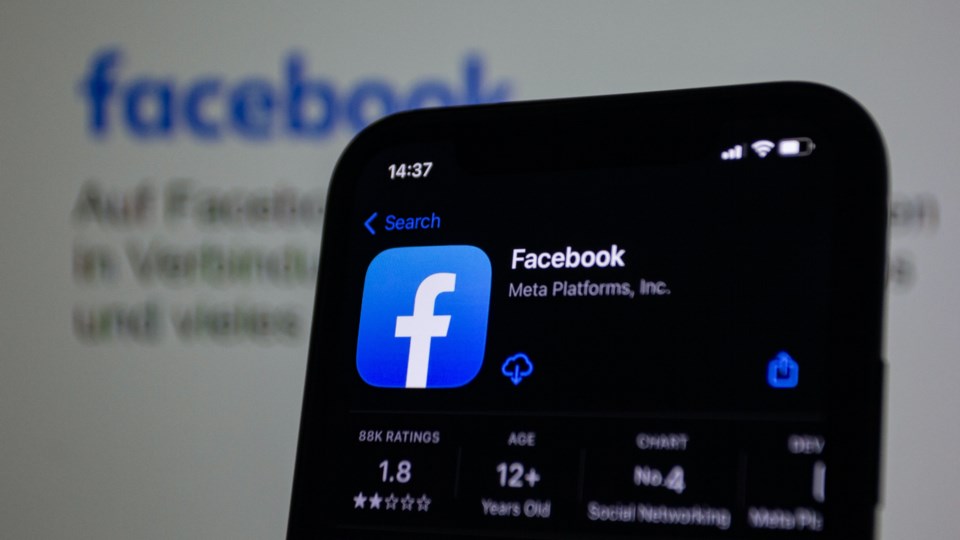Premier David Eby has ordered the B.C. government to pull advertising from Facebook and Instagram, after calling tech company Meta’s decision to shut off access to Canadian news “.”
Eby said the province will no longer use public funds to advertise on Meta platforms, except in cases of trying to reach the public during safety issues, such as wildfires.
“Local media creates much of the content that tech giants have relied on to build their business models, and many British Columbians now rely on social media to get their news. Meta’s decision to cut off that access is totally unacceptable,” Eby said in a statement.
“To send a strong message to Meta that journalism is a vital public service and access to news should never be blocked, our government has decided to stop all advertising on Facebook and Instagram – with a limited exception for critical health and safety information.”
The move aligns B.C. with the federal government, which pulled its own public advertising last week. Meta and Google oppose Canada’s new Online News Act, which would force the companies to compensate Canadian media outlets when links are shared on their platforms.
In response, Meta blocked Canadian news content. Google has threatened to do the same, but has first been negotiating with Ottawa.
Prime Minister Justin Trudeau said he would not be bullied by Meta and Google, whose dominant online presence and multi-billion dollar bank accounts have positioned them to make an example out of Canada. Eby, in comments to Glacier last week, called “the conduct of these companies is absolutely disgraceful.”
The B.C. government spent $1.4 million last year advertising on Facebook and Instagram, roughly seven per cent of its total advertising budget. Government communications officials could not say what percentage of normal advertising is considered “essential” public safety going forward.
“During emergencies, we need to use all effective communications tools at our disposal,” said Eby.
“We will only advertise on Meta to provide the public with critical information related to public health and safety emergencies – especially as B.C. is experiencing one of the worst wildfire seasons on record.”
B.C. will continue advertising with Google as it negotiates with the federal government.
Not all provinces have chosen to back Ottawa’s fight over local news. Quebec pulled its Meta advertising, as have media companies Quebecor and CBC/Radio-Canada.
Other provinces have indicated they will continue to spend public money advertising on whatever platforms people view. That was B.C.’s initial position as well, early last week, when the government's communications division initially tried to defend Meta.
“Due to an increasingly fragmented digital media landscape and the need to reach diverse audiences, including youth, the B.C. government’s public information campaigns include a thorough multi-channel advertising mix,” the statement read.
But Eby swept that aside later with his public comments, re-positioning the province away from backstopping its partisan communications expenditures and towards a defence of local news.
Rob Shaw has spent more than 15 years covering B.C. politics, now reporting for CHEK News and writing for Glacier Media. He is the co-author of the national bestselling book A Matter of Confidence, host of the weekly podcast Political Capital, and a regular guest on CBC Radio. [email protected]





